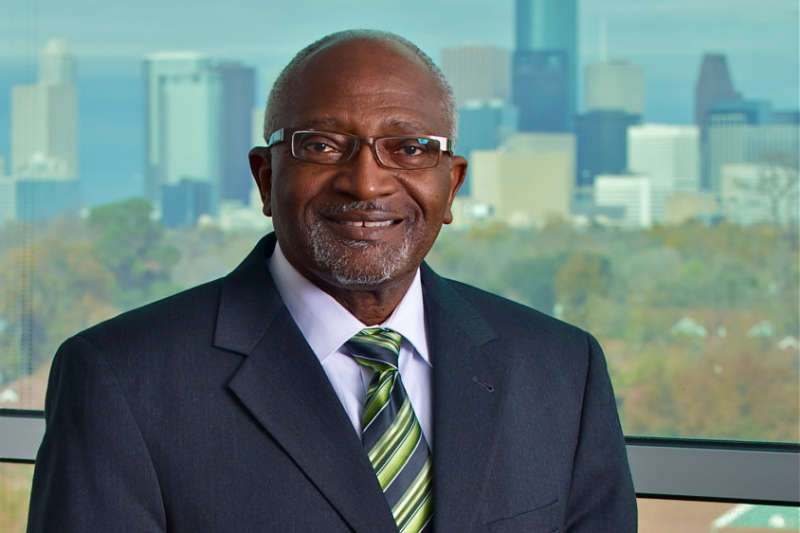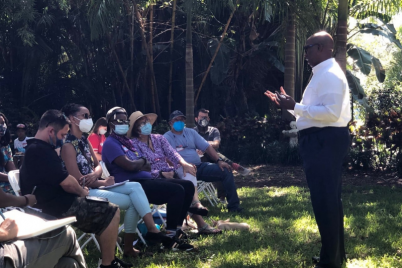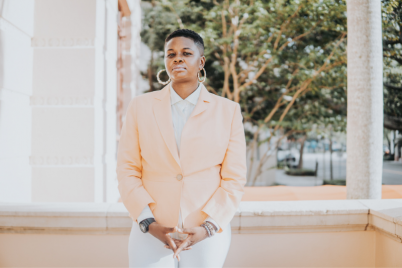Dr. Robert Bullard, one of the premier national experts on issues of environmental and climate justice.
ST. PETERSBURG — Florida communities are already experiencing the effects of climate change, from sunny-day flooding to more powerful and unpredictable hurricanes. And experts predict people from diverse and vulnerable neighborhoods will continue to be disproportionately impacted.
Now researchers from the University of South Florida are partnering with organizations from south St. Petersburg to hold conversations about climate justice and how residents can start building greater resiliency within their community. Residents will also have the rare opportunity to learn from renowned scholar Dr. Robert Bullard, one of the premier national experts on environmental and climate justice issues.
The events are tied to the annual Initiative on Climate Adaptation and Resilience (iCAR) Workshop, which is titled Climate Justice, Social Networks, and Equitable Resilience this year. In its seventh year, iCAR is based at USF’s St. Petersburg campus and aims to help the local community prepare and become more resilient to future environmental changes.
The first event will be a town hall meeting in the Carter G. Woodson African American Museum garden, 2240 9th Ave. S, from 10-1 p.m. on Saturday, Sept. 25. Free food and drinks will be provided, and there will be a crafts table for children. Participants will also be provided with a digital link or QR code to access information from their smartphones to help prepare and recover from a major storm.
The purpose of the meeting is to engage the community in identifying the most pressing climate-related issues they face, from lost wages as a result of hurricanes to air quality to street flooding, said Rebecca Johns, associate professor of geography and co-director of iCAR.
“One of our goals has always been to leverage the resources of the university to make those more accessible to marginalized communities,” Johns said. “We know there’s a big divide between academia and poor, Black and working-class communities. We’ve been trying for years now to try to break some of those walls down and make some of these resources available.”
The input gathered from the town hall will be communicated to Bullard, the keynote speaker for the annual iCAR workshop. He’ll be delivering a virtual presentation on Oct. 20 at 7:30 p.m. titled “Confluences of Environmental and Climate Justice: Bringing Diverse Partners Together for Community Resilience.”
Bullard’s presentation will be held on Wednesday, Oct. 20, at 7:30 p.m. Participants can watch online through Zoom or join a watch party at the USF St. Petersburg campus waterfront. More information and a link to RSVP is available at bit.ly/iCARworkshop.
Bullard, who is often referred to as the father of environmental justice, is currently the distinguished professor of Urban Planning and Environmental Policy at Texas Southern University. He is an award-winning author of eighteen books that address sustainable development, environmental racism, urban land use, industrial facility siting, community reinvestment, housing, transportation, climate justice, disasters, emergency response, community resilience, smart growth, and regionalism equity. Bullard is also co-founder of the Historically Black Colleges and Universities (HBCU) Climate Change Consortium.
Bullard’s presentation is an important step forward in involving the south St. Petersburg community members in creating a plan to combat the effects of climate change, which has been a priority for iCAR since its inception.
“This ties back to the original mission of iCAR,” said Barnali Dixon, executive director of iCAR and professor of geographic information systems and remote sensing. “We wanted to foster equitable resiliency based on informed decision making. The data and information, and research should guide the policies. But at the same time, we want to develop the research agenda from the grassroots.”
According to the U.S. Environmental Protection Agency, environmental justice is the fair treatment and meaningful involvement of all people regardless of race, color, national origin, or income regarding the development, implementation, and enforcement of environmental laws, regulations, and policies. A recent example would be the situation in Flint, Mich., where the community’s drinking water was contaminated by lead. Minorities and low socioeconomic classes were disproportionately affected because they could not leave the area or find alternative water sources.
Climate justice builds on this concept by addressing the disproportionate impact of climate change on poorer and more disadvantaged communities.
“We wanted to start with the grassroots,” Dixon said. “The people who have the least say and the communities who do not normally have time or access to the process, that’s who we wanted to reach.”
The iCAR workshop will also feature a presentation on the Community Resiliency Information System (CRIS), which was designed to “make smart cities smarter” by allowing residents from diverse communities to communicate their resources and information needs to decision-makers. CRIS was designed to foster transparency and communication between the government and the community.
Non-governmental organizations (NGOs) can review the data from CRIS and provide mission-specific services, building greater resiliency. Dixon and Johns were awarded a grant from AT&T to establish a preliminary platform in St. Petersburg’s Childs Park neighborhood.
For more information about this year’s iCAR Workshop, including a list of objectives, visit bit.ly/iCARworkshop.








